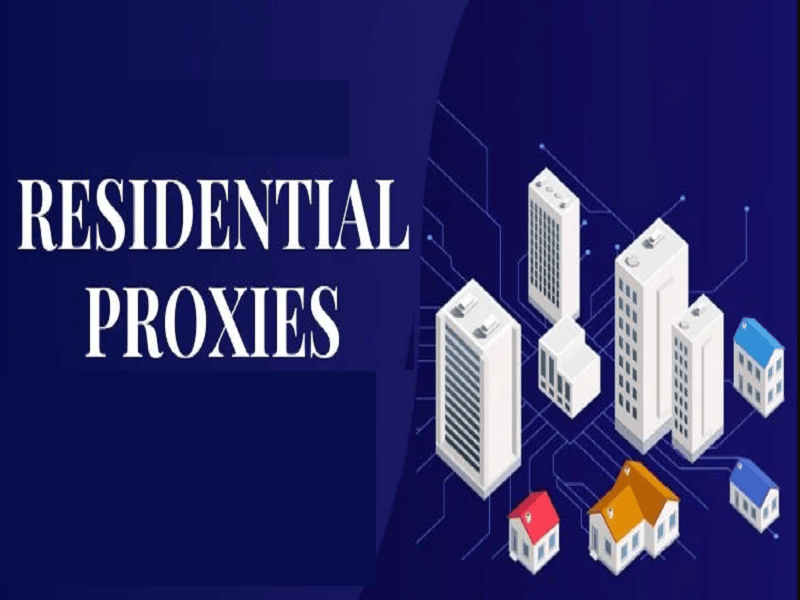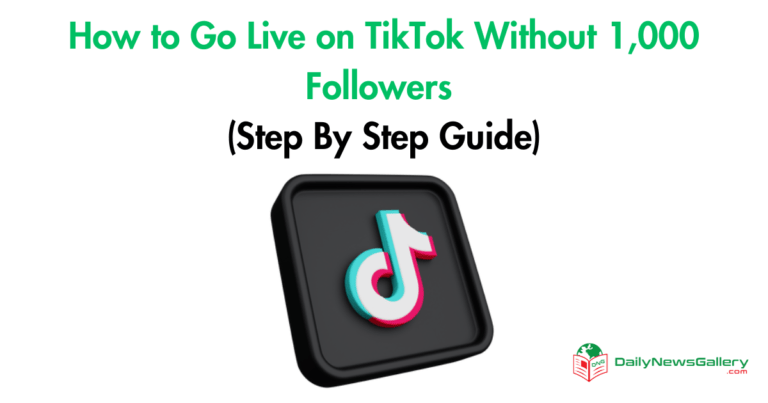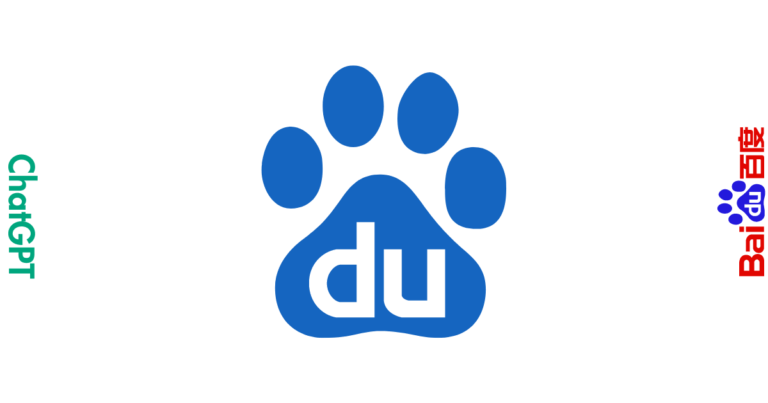
A Residential Proxy is a powerful tool that transforms digital interactions for individuals and businesses. Unlike data center proxies, it derives its IP address from residential devices, adding authenticity. Operating as a mediator between your device and the internet, it channels internet traffic through an ISP-provided IP address. This proxy offers enhanced privacy by concealing your IP, bypassing geolocation barriers, and aiding data collection. It boosts security by shielding against malicious websites and maintaining an unpredictable connection. A residential proxy amalgamates authenticity, security, and accessibility. Whether you’re an entrepreneur, marketer, or individual, this proxy is a versatile solution. Choose a reputable provider and practice ethical online behavior for maximal benefits while navigating the digital realm.
Introduction to Residential Proxies
In its essence, a residential proxy acts as an intermediary between your device and the internet. Unlike traditional data center proxies, which originate from servers in data centers, residential proxies utilize IP addresses provided by internet service providers (ISPs) to relay your online requests. This setup not only conceals your real IP address but also provides the advantage of appearing as a legitimate residential user.
What are Residential Proxies?
Residential proxies are IP addresses assigned to homeowners by ISPs. These proxies route your internet traffic through real devices, offering a level of authenticity that data center proxies lack. By masking your IP address, residential proxies enable you to access websites without revealing your true identity or location.
How do Residential Proxies Work?
When you connect to the internet using a residential proxy, your connection requests pass through the proxy server, which then forwards them to the target website. The website, in turn, responds to the proxy server, which relays the response back to your device. This intricate process creates a layer of separation between you and the websites you interact with, safeguarding your personal information.
Benefits of Using Residential Proxies:
1. Enhanced Anonymity and Privacy
Residential proxies lend you the cloak of anonymity, making it challenging for websites, advertisers, and even malicious actors to track your online activities. Whether you’re researching sensitive topics or shopping discreetly, residential proxies provide a shield against prying eyes.
2. Bypassing Geolocation Restrictions
Some websites restrict content based on geographical location. By routing your connection through a residential proxy in the desired location, you can access region-restricted content with ease.
3. Web Scraping and Data Gathering
Businesses often require vast amounts of data from the web for market research, price comparison, and trend analysis. Residential proxies enable ethical web scraping, allowing you to gather information without triggering IP bans.
4. Improved Security
Residential proxies act as intermediaries that help safeguard your device from direct contact with potentially malicious websites. This extra layer of security can prevent unwanted cyber threats and attacks.
Different Types of Residential Proxies:
1. Rotating Residential Proxies
Rotating residential proxies cycle through a pool of IP addresses makes it challenging for websites to detect and block your connection. This dynamic approach enhances anonymity and reduces the risk of IP bans.
2. Static Residential Proxies
Static residential proxies provide you with a fixed IP address that remains constant during your browsing session. They are suitable for tasks that require consistent IP identification.
3. Peer-to-Peer (P2P) Proxies
P2P residential proxies harness idle resources from other users’ devices, creating a decentralized proxy network. While cost-effective, they may have varying reliability.
Applications of Residential Proxies:
1. E-commerce and Sneaker Botting
Residential proxies are coveted by e-commerce enthusiasts and sneaker aficionados for buying limited-release items online. By rotating IPs, they can bypass purchase limits and secure multiple items.
2. Market Research
Businesses leverage residential proxies to gather competitor pricing, customer reviews, and product details, enabling informed decision-making and strategizing.
3. Ad Verification
Digital marketers employ residential proxies to verify the placement and visibility of ads on different websites, ensuring the accuracy of their campaigns.
4. SEO Tracking
Residential proxies aid in tracking search engine rankings from different locations, providing insights into the effectiveness of SEO strategies.
Choosing the Right Residential Proxy Provider
Selecting a reliable residential proxy provider is paramount. Look for providers that offer diverse IP pools, transparent pricing, customer support, and user-friendly configuration options.
Setting Up and Configuring Residential Proxies
Most residential proxy providers offer detailed guides for setting up proxies with various tools and browsers. Configure your proxy settings according to your needs for optimal performance.
Potential Drawbacks and Risks
While residential proxies offer numerous advantages, it’s essential to consider potential drawbacks. These include higher costs compared to data center proxies, occasional reliability concerns, and ethical considerations when using someone else’s IP address.
Best Practices for Using Residential Proxies:
1. Rotate IP Addresses Regularly
To maintain anonymity and avoid detection, make use of the rotating IP feature offered by many residential proxy providers.
2. Respect Website Terms of Use
While proxies offer anonymity, ensure you adhere to website terms of use and avoid engaging in activities that may lead to bans.
3. Monitor Proxy Performance
Regularly monitor your proxy’s performance to ensure stable and secure browsing experiences. Switch providers if you encounter persistent issues.
Comparing Residential and Datacenter Proxies
Residential proxies offer higher anonymity and authenticity, while data center proxies provide faster speeds. Choose based on your priorities and the specific use case.
Navigating the world of web scraping can be a challenging endeavor, especially when you’re constantly getting blocked by anti-bot measures. One of the most effective solutions to this problem is using residential proxies. These proxies route your web traffic through residential IP addresses, making it difficult for websites to block your requests. However, with a plethora of residential proxy providers available, making the right choice can be overwhelming. This guide aims to simplify that process for you.
Why Opt for Residential Proxies?
Evasion of Anti-Scraping Measures
Residential proxies are harder to detect and block because they use IP addresses associated with real devices. This makes them ideal for bypassing anti-scraping measures employed by various websites.
Geolocation Flexibility
These proxies offer IP addresses from different locations around the world, allowing you to access region-specific data and bypass geo-restrictions.
Extensive IP Pool
Providers usually have a large pool of rotating IP addresses, enabling you to scrape data from multiple locations, devices, and ISPs without raising suspicions.
Top Residential Proxy Providers:
1. ZenRows: The All-in-One Toolkit
- Key Features: Offers a large pool of premium residential proxies, advanced anti-bot bypass capabilities, and 99.9% uptime.
- Pricing: Starts at $49/month for 250,000 API credits.
2. BrightData: The Largest IP Pool
- Key Features: Offers 72+ million residential IPs, supports multiple protocols and requires ID verification.
- Pricing: Starts at $15/GB.
3. Oxylabs: The Big Player
- Key Features: Controls over 100 million IPs, offers a 99.95% success rate, and requires ID verification.
- Pricing: Starts at $15/GB.
4. Smartproxy: Speed and Affordability
- Key Features: Offers 50+ million residential IPs, 99.99% uptime, and unlimited connections.
- Pricing: Starts at $8.5/GB.
5. LunaProxy: Best Quality/Price Ratio
- Key Features: Controls 200 million IPs, offers 99.9% availability, and unlimited concurrency.
- Pricing: Starts at $0.8/GB.
6. SOAX: Customer-Centric Approach
- Key Features: Offers 8.5+ million residential IPs, 99.9% uptime, and 24/7 support.
- Pricing: Starts at $99/month.
7. PrivateProxy: The Old Guard
- Key Features: Offers dedicated IPs, almost 100% uptime, and unmetered bandwidth.
- Pricing: Starts at $5/month.
8. IPRoyal: Pay-as-You-Go Flexibility
- Key Features: Offers over two million genuine residential IPs, 99.9% uptime, and no contracts.
- Pricing: Starts at $7/GB.
9. GEOSurf: For Enterprise Businesses
- Key Features: Offers over three million residential IPs, 99.9% uptime, and dedicated support.
- Pricing: Starts at $300/month.
10. NetNut: Combined Residential and ISP Proxies
- Key Features: Offers 52+ million auto-rotating residential IPs, 99% uptime, and a dedicated account manager.
- Pricing: Starts at $300/month.
What Is a Residential Proxy?
FAQs About Residential Proxies:
1. What is a residential proxy? A residential proxy is an IP address provided by an Internet Service Provider (ISP) to a homeowner. It allows users to route their internet traffic through the IP address of a real residential device.
2. How does a residential proxy work? Residential proxies work by disguising your online identity. When you connect through a residential proxy, your web requests appear to come from a legitimate residential IP address, enhancing anonymity.
3. Why would I use a residential proxy? Residential proxies are useful for tasks like web scraping, data mining, and accessing geographically restricted content. They provide access to websites as if you were browsing from a real residential location.
4. Can I use a residential proxy for anonymity? Yes, residential proxies help protect your online identity by masking your real IP address and location, making it difficult for websites to track your activities.
5. How are residential proxies different from data center proxies? Residential proxies use IP addresses associated with real residential devices, while data center proxies use IP addresses from data centers. Residential proxies offer greater authenticity and are less likely to be blocked by websites.
6. Can I buy residential proxies? Yes, you can purchase residential proxies from various providers. These proxies are often sold in packages based on usage or number of IPs.
7. How do I use a residential proxy? You can use a residential proxy by configuring your browser or software to route traffic through the proxy server’s IP address. Many proxy providers offer guidance on setup.
8. Are residential proxies legal? Using residential proxies for legitimate purposes is generally legal. However, it’s important to follow the terms of service of the websites you access and avoid engaging in illegal activities.
9. What are the benefits of using residential proxies? Residential proxies provide enhanced privacy, access to geolocation-restricted content, and the ability to scrape data from websites without getting blocked.
10. Can I choose the location of my residential proxy? Yes, many residential proxy providers offer the option to choose the location of the IP address you want to use. This is particularly useful for accessing region-specific content.
11. How do websites detect residential proxies? Websites can detect residential proxies through various methods, such as analyzing IP ownership, behavior patterns, and usage patterns that differ from regular users.
12. Are residential proxies slower than data center proxies? Yes, residential proxies are generally slower than data center proxies because they route traffic through real residential connections, which can have varying speeds.
13. Can residential proxies be used for social media automation? Yes, residential proxies can be used for social media automation tasks like posting, following, and liking, but be cautious to avoid violating platform rules.
14. Do residential proxies work with all websites? Residential proxies work with most websites, but some may have advanced security measures that detect and block proxy traffic.
15. How often do residential IP addresses change? The frequency of IP address changes depends on the residential proxy provider. Some offer rotating IPs that change with each request, while others provide static IPs.
16. What is IP rotation with residential proxies? IP rotation involves cycling through a pool of residential IP addresses to avoid detection and prevent websites from blocking your connection.
17. Can I use residential proxies for e-commerce tasks? Yes, residential proxies can be used for e-commerce tasks such as price monitoring and inventory tracking. They allow you to gather data without revealing your true identity.
18. Are residential proxies encrypted? Residential proxies themselves do not provide encryption. For secure communication, consider using HTTPS connections or additional encryption tools.
19. Do residential proxies work with search engines? Yes, you can use residential proxies for scraping search engine results, but search engines may have measures to detect and prevent automated scraping.
20. How reliable are residential proxies? The reliability of residential proxies varies based on the provider’s network quality and the specific IP addresses you’re using.
21. Can I set up my own residential proxy? Setting up your own residential proxy requires technical expertise and access to residential IP addresses. It’s often more practical to use a reputable proxy provider.
22. Do residential proxies support all protocols? Residential proxies typically support common protocols like HTTP and HTTPS. However, support for other protocols may vary.
23. Are residential proxies detectable? Advanced detection methods used by websites may identify some residential proxies. To improve anonymity, consider using a high-quality proxy service.
24. Can I use a residential proxy for streaming? Using a residential proxy for streaming can be challenging due to the slower speeds of residential connections. It’s recommended to use dedicated streaming services instead.
25. Are there free residential proxies available? Free residential proxies are rare and often unreliable. Paid proxy services offer better performance, security, and customer support.
26. How do I choose a residential proxy provider? Consider factors like IP pool size, location options, speed, customer reviews, and customer support when selecting a residential proxy provider.
27. Do residential proxies hide my online activity from my ISP? Residential proxies can mask your browsing activity from websites, but your ISP can still see your overall internet usage.
28. Can I use a residential proxy on a mobile device? Yes, some residential proxy providers offer solutions for mobile devices, allowing you to route your mobile traffic through residential IPs.
29. What is the difference between a dedicated and a shared residential proxy? A dedicated residential proxy provides exclusive use of an IP address, while a shared residential proxy assigns the same IP to multiple users.
30. How do pricing models for residential proxies work? Residential proxy pricing models can be based on the number of IPs, usage time, or a combination of both. Choose a plan that fits your needs.
31. Are residential proxies suitable for web scraping? Yes, residential proxies are commonly used for web scraping due to their authenticity and lower chance of getting blocked compared to data center proxies.
32. Can I use residential proxies for online security? While residential proxies can add a layer of anonymity, they are not a comprehensive security solution. Consider using them in combination with other security measures.
33. How do I rotate IPs with residential proxies? IP rotation can be automated by the proxy provider or implemented manually using scripts and APIs.
34. Can I access my bank accounts through residential proxies? It’s generally not recommended to access sensitive accounts like banking through proxies, as this might trigger security alerts.
35. Are residential proxies undetectable? No proxy is completely undetectable. Websites with strong security measures might identify proxy usage, but high-quality residential proxies are less likely to be detected.
36. What is the average lifespan of a residential proxy IP? The lifespan of a residential proxy IP varies. IPs might cycle quickly or remain static for extended periods, depending on the provider.
37. Are residential proxies effective for sneaker botting? Residential proxies can be used for sneaker botting, but this field is highly competitive and challenging due to constant anti-bot measures.
38. How do residential proxies affect online gaming? Using residential proxies for online gaming can lead to higher latency and slower connections, negatively impacting the gaming experience.
39. Can I use a residential proxy to access region-locked content? Yes, residential proxies allow you to access content that is restricted to specific geographic regions by making it appear as if you’re browsing from that location.
40. How can I test the performance of a residential proxy before committing? Many proxy providers offer trial periods or money-back guarantees. Utilize these options to assess the performance and suitability of a residential proxy before making a long-term commitment.






